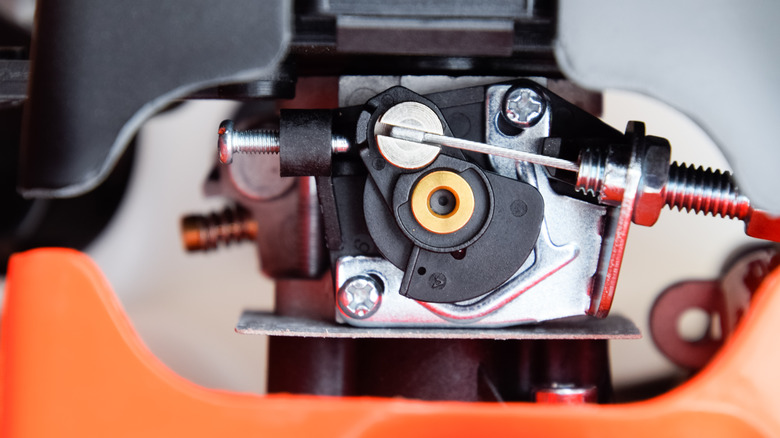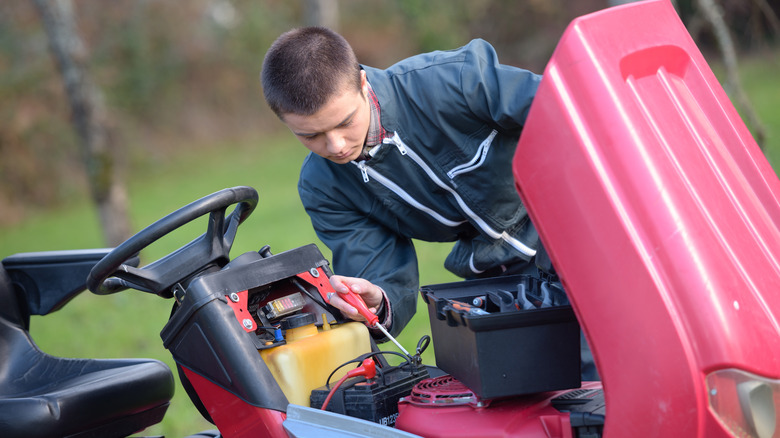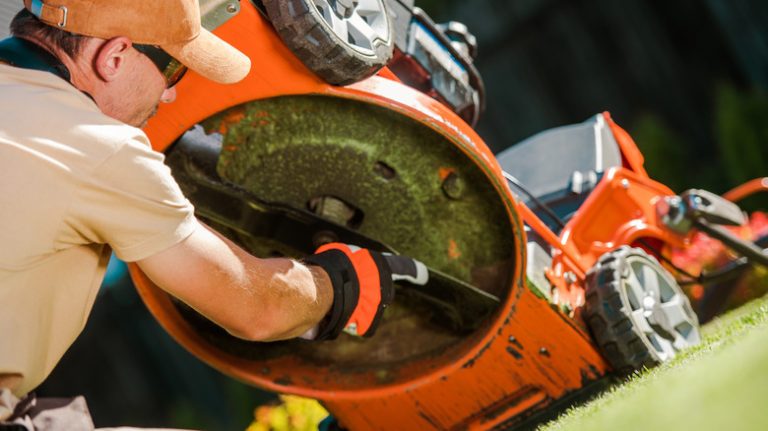If your lawn mower starts surging, you’re essentially dealing with a lack of fuel making its way to the engine, and a bad carburetor is one common cause. A malfunctioning carburetor causes the engine to struggle with slow acceleration, discernible power dips, and a decrease in fuel efficiency. What is this essential part, and why is it so important to the functioning of your lawn mower?
The carburetor is key to your lawn mower’s engine. It works by mixing air and fuel in the proper ratios. In mechanical terms, it takes in air through an air filter, mixes it with fuel, and sends this concoction to the engine cylinders for combustion. When everything works as it should, you get a lawn mower that operates smoothly with adequate power and good fuel economy. When it doesn’t—well, that’s when you start experiencing problems.
You might be wondering why the carburetor significantly impacts so many aspects of your lawn mower’s performance. That’s because it’s interconnected with other systems in the mower. A lack of proper air and fuel mixture affects the combustion process, causing more serious issues like black smoke coming out of the exhaust. By recognizing the signs and understanding the carburetor’s role, you’re well-equipped to troubleshoot problems, potentially saving you both time and money buying a new lawn mower.
Why a bad carburetor causes sluggish acceleration and reduced power and efficiency

One common culprit is clogged fuel jets inside the carburetor. These jets are like tiny doorways, regulating the air and fuel entering the engine. They can’t supply the engine with the right mixture for optimal combustion when they are clogged. As a result, the engine struggles. A blocked air filter may also indicate a malfunctioning carburetor. An adequate flow of air is necessary for the carburetor to operate correctly. An imbalance in the air-fuel combination results from air filter particles restricting airflow. This leads to similar symptoms of reduced power and poor acceleration.
It’s also worth mentioning that dirt, gunk, and various kinds of buildup can accumulate over time, affecting the carburetor’s performance. Ethanol in modern fuels can also take a toll on the lawnmower. When present in fuel, it directly contributes to the rusting of essential metal parts like the carburetor and speeds up the degradation of plastic and rubber components. Additionally, it complicates engine ignition and can ultimately shorten the engine’s lifespan. Seasonal changes can affect your mower as well. For example, letting your lawnmower sit idle during winter can result in stale fuel, which eventually mixes with dirt. In essence, a combination of problems can make your lawnmower even less efficient and more frustrating to use.
How to fix a surging engine on your lawn mower

So you’ve pinpointed the carburetor as the source of your lawn mower’s woes. What’s next? The first step in resolving this issue is to unscrew the carburetor and examine its internal parts. Pay particular attention to the jets to ensure they are clean. You can use carburetor cleaner to dissolve any buildup or residue. A wire brush can also help in scrubbing away the gunk. Also, don’t forget to inspect the gasket that sits between the carburetor and the intake. A damaged or deteriorating gasket can also contribute to engine surging. While you’re at it, take a moment to clean the air filter with a cloth or replace it. As mentioned earlier, a clogged air filter can worsen an already problematic carburetor. Ensure the filter is free from dirt and debris for optimal airflow.
After you’ve cleaned the carburetor and the air filter, reinstall all the parts. Ensure that everything is tightly secured and correctly aligned. Reassembling parts incorrectly could create new problems. Now, start your lawn mower and listen. Has the surging stopped? Is your mower running more efficiently? If the answer is yes, congratulations—you’ve successfully remedied the issue. If the problem persists or your lawn mower won’t start, you may need to consult a professional to rule out more serious underlying issues. But by tackling the most common cause head-on, you’ve taken a big step toward prolonging the lifespan of your lawn mower.



